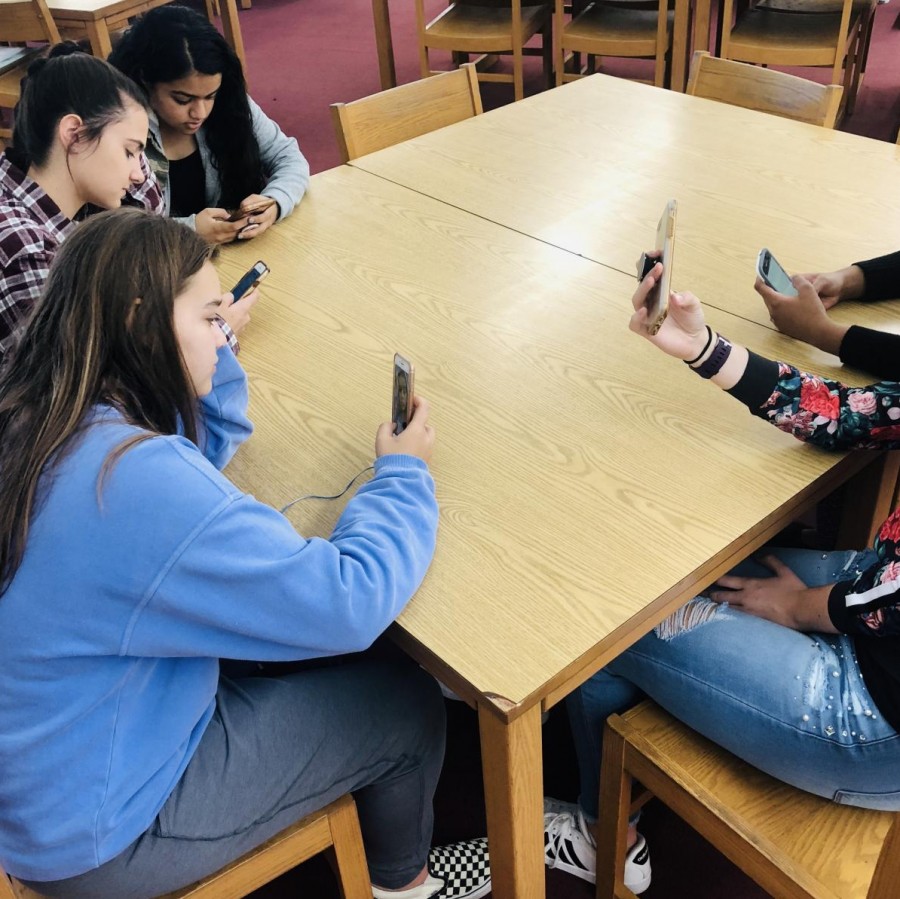Snapchat. Instagram. Twitter. Social media has been and always will be, a prominent presence in our world today and specifically towards teenagers and the way teens function. Since the release of the first iPhone in 2007, the fire of social media has increased and has raged throughout the world. Just as comes with anything, social media has had positive and negative impacts on the human brain and functionality.
Snapchat allows friends to keep constant contact with fun pictures, face filters, and stories with other videos and pictures.
Instagram gives many social media influencers a career platform and gives friends who live far away from each other to always see what one another is up to in their lives.
Twitter gives live little updates for sports and politics, hilarious tweets to make someone’s day, and allows the world to share their opinions on various issues.
Despite all the good things about social media, recent studies have shown that social media can have detrimental negative effects on the human brain. These social media platforms are relating to increased rates of depression, anxiety, and even suicide in teens showing that something in this world of social media needs to change.
Thousands, even millions of people use social media everyday, often for hours on end, so how can something so common can be so bad for the brain?
Technology and youth expert Amanda Lenhart conducted the 2015 Pew study of teens, technology, and friendships which revealed a wide range of social media-induced stressors on the teenage brain: seeing people posting about things you may not have been invited to, feeling pressure to post positive and attractive content about yourself, feeling pressure to get comments and likes on your posts, and even worrying about what someone else will post about another person on social media.
“Digital/social media stressors” is a term that many psychologists have been using about social media and the way it has impacted teenage brains. According to a study done at the San Diego State University, eight percent of teens who spend five hours per day on an electronic device have at least one suicide risk factor, compared to the 33 percent of teens who spend two hours a day on an electronic device.
The correlation between the amount of time teenagers are spending on their phones and their brains is a direct reason that teens are feeling more depressed, lonely, and anxious in today’s society.
Even with the original positive nature of social media which is full of likes, followers, and comments, it is not necessarily the very nature of social media directly that is causing the negative health effect, but it is the normal stressors of everyday teenage life that it is facilitating.
“So many of the behaviors we’re talking about have pre-digital corollaries,” said Emily Weinstein, a postdoctoral researcher fellow at the Harvard Graduate School of Education. “They’re the same sort of developmental challenges that adolescents have grappled with for decades, though now they’re taking place in different spaces that can certainly amplify them and shift their quality, quantity, and scale.”
The attachment to social media is giving the natural stressors that teenagers experience a negative way to express themselves that is having life-changing effects on the brain. Body image, social acceptance, finding friends, and doing well in school are all problems that every teenager struggles with and participating in social media does not help. Garrett Massengale, who is not active on his Instagram account said, “Overall, social media hurts people more than it helps. It is the biggest place that people use to cyber bully others and in the end it just makes people feel bad about themselves due to expectations set by other accounts.”
Besides the negative mental effects on the brain, many teenagers do not feel that social media doesn’t even provide a platform to build relationships on. Pleasant Valley senior Sheridan Culp said this about Snapchat: “I think that Snapchat is terrible because I don’t understand why you can’t talk to someone in person instead of sending random pictures back and forth of your face. You can’t create a real friendship.”
Because of all the negative mental effects of social media, many psychology experts are advising people to take a detox from any form of social media to give them perspective on what really matters in their lives and step away from the digital world. Should you do the same? The anxiety, depression, and fake relationships are not worth it for something made of metal and a little bit of a glass screen. Make the right choice.









